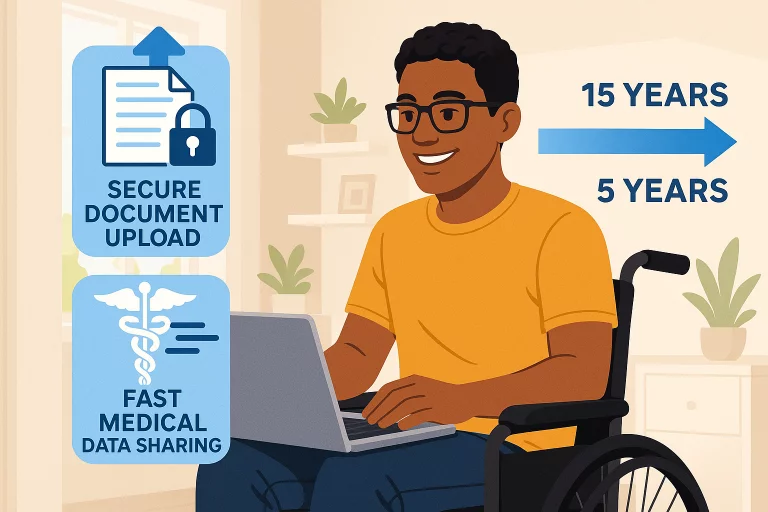Life’s pace doesn’t seem to slow down, and with the constant hustle, it’s easy to forget the importance of taking time to recuperate. Recuperation is a vital process that helps restore physical, mental, and emotional balance. For people of all ages, understanding and incorporating recuperative practices into daily life can lead to improved health and well-being. In this article, we’ll explore different methods of recuperation, tips on integrating them into your routine, and real-life success stories of individuals who have embraced this concept.
Understanding the Benefits of Recuperation
It isn’t just about rest; it’s a comprehensive process that involves healing and rejuvenating the body, mind, and emotions.
Physical Recuperation
Physical recuperation is essential for allowing the body to repair itself. When you rest after physical exertion, your muscles recover from strain. This recovery period helps prevent injuries and boosts physical performance in the long run.
Mental Recuperation
Our minds are constantly bombarded with information and stressors. Mental recuperation allows the brain to process and store information, enhancing memory and cognitive function. Taking time to recuperate mentally can reduce the risk of burnout and improve overall productivity.
Emotional Recuperation
Just as our bodies and minds need rest, so do our emotions. Emotional recuperation helps manage stress and prevent emotional exhaustion. By taking time for yourself, you can improve your mood and emotional resilience, leading to a happier, more balanced life.
Different Methods to Recuperate
There are various ways to recuperate that cater to different needs and preferences. Here are some effective methods to consider:
Rest and Sleep
The simplest way to recuperate is through quality rest and sleep. Giving your body and mind time to relax aids in recovery processes. Establishing a regular sleep routine and creating a comfortable sleep environment helps ensure you get the rest you need.
Relaxation Techniques
Incorporating relaxation techniques like deep breathing, meditation, and yoga can enhance recuperation. These activities calm the mind, reduce stress levels, and promote a sense of peace and well-being.
Active Recovery
For those who prefer a more dynamic approach, active recovery through light exercise or stretching can be beneficial. Activities like walking, swimming, or gentle yoga help maintain physical fitness while allowing the body to recuperate.
Incorporating Recuperative Practices into Daily Life
Integrating recuperation into your routine may seem challenging, but with the right strategies, it’s achievable.
Prioritize Self-Care
Make self-care a non-negotiable part of your schedule. Set aside time each day to engage in activities that relax and rejuvenate you, whether it’s reading, taking a bath, or practicing mindfulness.
Create a Balanced Routine
Striking a balance between work and leisure is crucial. Ensure your daily routine includes moments for relaxing and unwinding. This balance supports overall well-being and helps prevent burnout.
Set Boundaries
Protecting your time and energy is essential for effective recuperation. Learn to say no to excessive demands and create boundaries that allow you to focus on your well-being.
Real-Life Examples and Success Stories
Hearing about others’ experiences can inspire and motivate you to prioritize recuperation.
Jack’s Journey to Recuperation
Jack, a high-powered executive, struggled with stress-related health issues. By incorporating regular meditation and nature walks into his routine, Jack managed to lower his stress levels significantly. His newfound balance led to improved health and a more fulfilling life.
Emily’s Story of Emotional Recuperation
Emily, a college student, faced emotional burnout from juggling academics and part-time work. She found solace in journaling and practicing gratitude. These simple recuperative practices helped Emily regain emotional stability and cope better with daily challenges.
The Impact of Technology on Recuperation
Technology can both aid and hinder our ability to recuperate.
Positive Impacts
Technology offers tools that assist in enhancing recuperative practices. Meditation apps, sleep trackers, and wellness platforms provide guidance and support for those seeking to improve their well-being.
Challenges and Solutions
However, constant connectivity can disrupt recuperation. The allure of social media and endless notifications often prevents us from fully unwinding. To strike a balance, set specific tech-free times and create boundaries around device usage.
You may also like:Kingymab: The Future of Precision Medicine in Healthcare
Conclusion
Recuperation is a fundamental aspect of maintaining health and well-being across all age groups. By understanding its importance and exploring various methods, you can enhance your quality of life. Whether through rest, relaxation techniques, or active recovery, prioritizing recuperation allows you to recharge and face life’s challenges with renewed energy and focus. Start today by integrating these practices into your routine and experience the positive impact on your life.
FAQs
- Why is recuperation important for all age groups?
Recuperation supports physical, mental, and emotional health, helping individuals of all ages maintain balance and prevent burnout.
- What are some quick recuperative practices I can try?
Quick practices include deep breathing, short walks, and unplugging from technology for a few minutes each day.
- Can I recuperate while still being active?
Yes, active recovery methods like yoga and stretching can aid in recuperation while keeping you physically engaged.
- How can I balance technology use with my need to recuperate?
Set specific times for tech-free activities and be mindful of your screen time to ensure proper recuperation.
- Is recuperation solely about physical rest?
No, recuperation encompasses mental and emotional rejuvenation as well, promoting overall well-being.










